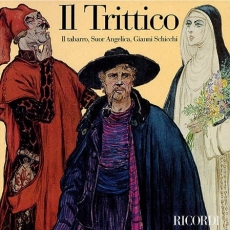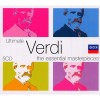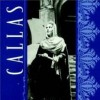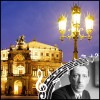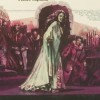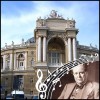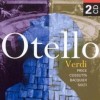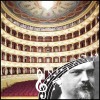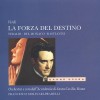歌剧剧本
Il trittico (The Triptych) is the title of a collection of three one-act operas, Il tabarro, Suor Angelica, and Gianni Schicchi, by Giacomo Puccini. The work received its world premiere at the Metropolitan Opera on December 14, 1918.
Background
Around 1904, Puccini first began planning a set of one-act operas, largely because of the success of Cavalleria rusticana. Originally, he planned to write each opera to reflect one of the parts of Dante's Divine Comedy. However, he eventually based only Gianni Schicchi on Dante's epic poem. Puccini also intended that the three always be performed as a set, and indeed was infuriated when they were separated, but today it is quite common to see only one or two performed in an evening. One of the operas may also be paired with another one-act opera by a different composer, an arrangement that Puccini despised even more.
Performance history
The operas premiered at the Metropolitan Opera on December 14, 1918. The critical reviews for Il trittico were mixed; most critics agreed that Gianni Schicchi was the most exemplary of the three operas. Il trittico premiered in Rome on January 11, 1919. Puccini, who had not been present for the New York premiere, attended the production at the Rome Opera House. The Rome performance received positive reviews; especially for Gianni Schicchi. Later that year, the trilogy was staged in Buenos Aires (June 25) with Tulio Serafin conducting and in Chicago (December 6). After these initial premieres, most opera companies began to perform the operas separately; Gianni Schicchi would eventually become the most frequently performed of the set.
Modernizations
A critically acclaimed production at the Metropolitan Opera opened on April 20, 2007, directed by Jack O'Brien and was broadcast on television by PBS's Great Performances at the Met series. In this production Il tabarro was moved to 1927, Suor Angelica was set in 1938, and Gianni Schicchi was moved from 1299 to 1959.
Synopsis
Il Tabarro
Michele’s barge on the Seine in Paris
Giorgetta is busy with her chores, while her husband, Michele, stands on deck. He asks her to kiss him, which she does, but without affection. She offers wine to Luigi, one of the stevedores, and they are joined by two other deckhands, Tinca and Talpa. They begin a dance, only to be interrupted by Michele’s return. With a song seller peddling his songs in the background (“Primavera, primavera”), Giorgetta asks Michele why he seems so troubled, but he does not answer. Talpa’s wife, Frugola, arrives to take him home and displays the wares she has collected on her daily rounds (“Se tu sapessi”). Tinca plans to drown his troubles in drink; Luigi agrees that is the only way to cope with their bleak existence (“Hai ben ragione”). Frugola dreams of a little house in the country (“Ho sognato una casetta”) and Giorgetta wishes she could leave the barge (“E ben altro mio sogno!”). She and Luigi consider the beauty of the city and its quiet suburbs. After Frugola and Talpa leave, Giorgetta and Luigi express their love for each other (“O Luigi! Luigi!”). Suddenly, Michele appears from the cabin, and Luigi, finding it unbearable to share his beloved Giorgetta with another, asks to be put off the barge when they reach Rouen. Michele convinces him not to leave his job, assuring him there’s no work in Rouen, and returns to the hold. Giorgetta and Luigi arrange to meet later that evening. She will leave the gangplank in place and light a match when Michele has gone to sleep. Luigi goes off and Michele again comes on deck. Sensing Giorgetta’s restlessness, he tries to evoke her past love for him by recalling happier days before the death of their child. Failing to regain her affection, Michele expresses his suspicions that Giorgetta is in love with another man, but he cannot figure out who it is (“Nulla! Silenzio!”). He settles down on the deck and lights his pipe. Seeing the light, Luigi rushes on board thinking it is Giorgetta’s signal. Michele grabs him, forces him to admit his love for Giorgetta, and strangles him, then conceals the body in his cloak. Giorgetta reappears on deck to apologize to Michele, who throws open his cloak to reveal Luigi’s dead body.
Suor Angelica
A convent
Sister Angelica and two lay sisters are late for chapel. The Monitor chides them for not doing penance as Sister Angelica has done. Some of the sisters confess they still long for worldly pleasures—Sister Genovieffa for the lambs she used to tend and Sister Dolcina for sweet things to eat. Sister Angelica denies she has any such desires, but the others know she desperately longs for some word from her family. For seven years she has heard nothing from them, and the sisters speculate that she was a princess, banished to the convent for reasons they have been unable to discover. Soon alms collectors arrive, distributing the food they have gathered. One of them mentions that a magnificent coach bearing a visitor stands outside the convent gate. Angelica is startled and, with increasing anxiety, asks her to describe the coach in detail. A bell rings announcing the visitor. The Abbess enters and tells Angelica that her aunt, the Princess, has come to see her. Approaching, the Princess rejects Angelica’s gestures of affection. The Princess explains that when Angelica’s parents died, she was made guardian of both Angelica and her sister, Anna Viola, and was given control over their inheritance (“Il principe Gualtiero”). Anna Viola is to be married and the Princess demands Angelica sign her share over to her sister. Having brought disgrace on the family name, the Princess declares, Angelica is no longer entitled to any part of the inheritance. Crushed by her aunt’s cruelty, Angelica swears she has repented. She cannot, however, erase the memory of her little son, who, she learns, died two years ago. Her will now broken, Angelica sobs and signs the document. The Princess withdraws and Angelica grieves that her son died without his mother by his side (“Senza mamma”). Resolving to join her child in heaven, she drinks poison. She is then struck by the reality of what she has done and prays for salvation. A celestial choir is heard and Angelica sees a vision of the Blessed Virgin with her child.
Gianni Schicchi
The Palazzo of Buoso Donati in Florence
The greedy relatives of the wealthy Buoso Donati gather at his deathbed to mourn his passing and investigate the details of his will. There are rumors that the old man has left nearly everything to a monastery. If his will has not been filed with a notary, however, there is still hope for the relatives, who begin a frantic search for the document. Young Rinuccio finds it and makes his Aunt Zita promise to let him marry his beloved Lauretta if there is enough money. They read the will, which proves the rumors were true; the relatives finally shed genuine tears. Rinuccio suggests that Lauretta’s father, Gianni Schicchi, a shrewd self-made man, can help them: this new breed of peasant-turned-businessman will invigorate Florence, which the young man compares to a tree in full flower (“Firenze è come un albero fiorito”). Schicchi appears with Lauretta. Disgusted by the hypocrisy and avarice of the aristocratic family, Schicchi is about to leave but decides to stay when Lauretta proclaims her intention to marry Rinuccio (“O mio babbino caro”). Reading the will, Schicchi devises a plan to impersonate the dead man. He sends Lauretta home and orders the body removed from the bed. The doctor arrives to check on Buoso, but Schicchi’s voice convinces the addled doctor that the patient is improving. Schicchi tells the relatives to send for the notary and, putting on Buoso’s nightshirt and cap, promises to dictate a new will. The relatives each try to get a promise from Schicchi that he will leave the best parts of the estate to them. Schicchi agrees with every secret request and warns each that they must keep the secret forever or face the punishment as accessories to a fraud—a hand cut off and eternal banishment from Florence. The notary arrives with witnesses, and Schicchi dictates that the great part of the estate, including the house they are all in, is to be left to his good friend Gianni Schicchi! The relatives are furious but can say nothing, and when the notary leaves they fall on Schicchi and steal what they can from the house. Schicchi orders them out of his house and points to the young lovers, standing out on the terrace gazing at the blossoming city. Turning to the audience, he points out how happy his fraud has made the young lovers, and pleads for a verdict of not guilty.





